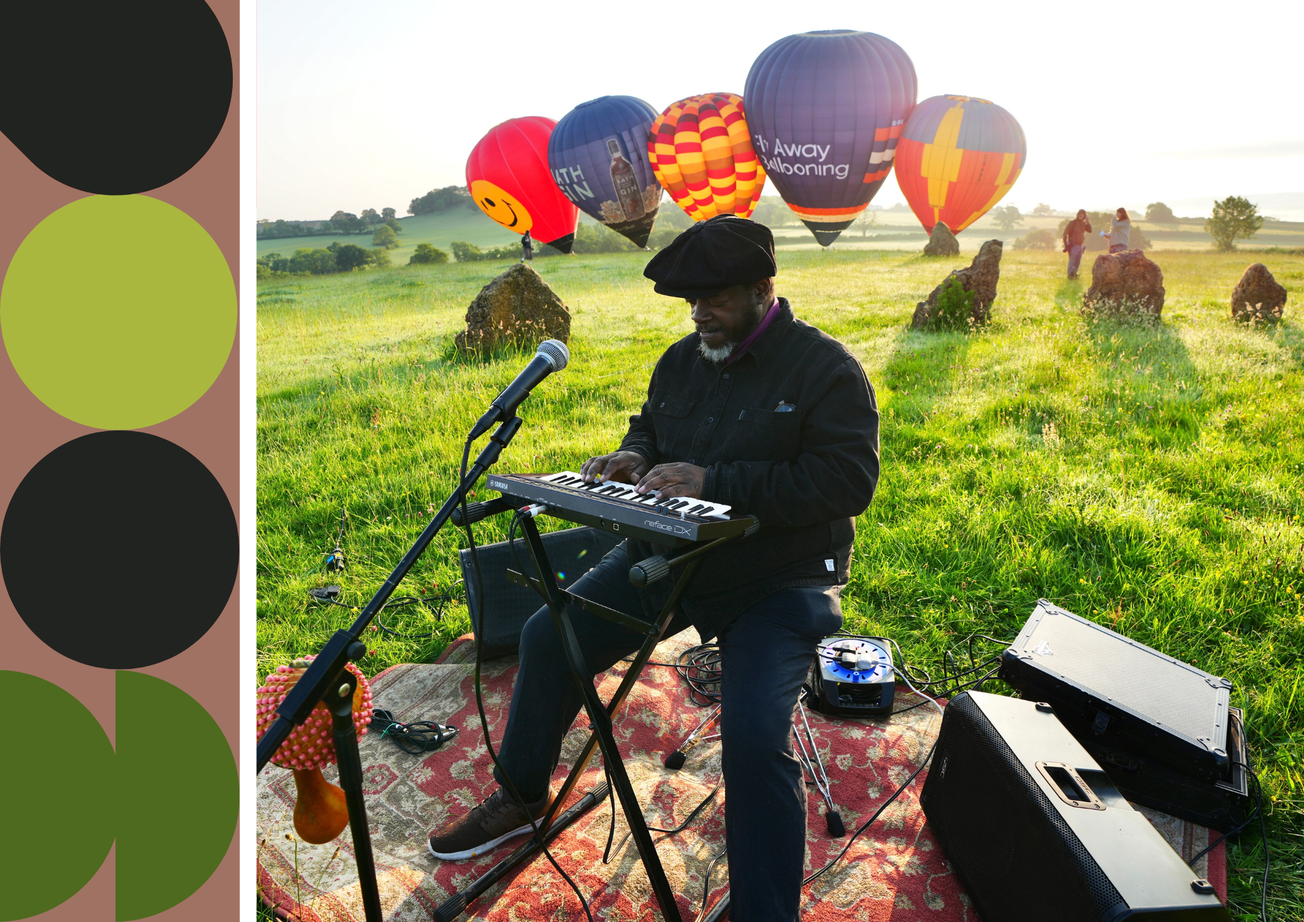By Lauren Paddison, First year Music
Musicians and fans alike packed out The Fleece at 15:30 on a Sunday evening to hear the magnificent Cory Wong talk about music for an hour.
With small introduction from the Jazz/Funk/Soul Society at Bristol University, who organised the Masterclass, Cory sat humbly with his guitar on his lap and a beanie hat that almost drowned his vision. Maybe the English weather is a climatic shock to the American guitarist. He introduced himself and announced he needed to warm up, and then it began. It was instant, he started playing and we were all hooked. You couldn’t not look at him. He effortlessly moved up and down the neck creating a groove that I didn’t know the guitar was capable of.
Cory is predominantly a rhythm player, which to some would mean four minutes of strumming chords to make up a song. Cory does nothing of the sort; he takes rhythmic playing to a whole new level and makes you rethink the whole idea of rhythm guitar. He takes his rhythm playing to the forefront, and his guitar has a whole new function compared to his role with American funk band, Vulfpeck. In his own music, he is free to do as he pleases, and his newest album ‘The Optimist’ is evidence of something that is completely his own. He says, ‘It’s my project, I kinda get to play whatever I want’.
He encouraged everyone in the room to ‘be who you are on your own instrument’ and explained that sometimes we can get tunnel visioned in our younger years on a particular player or style- this is all part of growth and learning. He talked about his collaborations with other musicians, and the way he referenced band member’s names instead of their instruments made the listener really feel a part of the process. It made it all real, and in a big way was relatable to the bedroom type jam sessions that so many of us in the audience had experienced. Because at the end of the day the way you get to know people musically is by playing with them, whether you’re famous or not.
If Cory Wong had mastered just one thing, which would be a gross understatement at best, it would be the integration of a ‘hook’ into his rhythmic melody writing. ‘Just play the line’ he says, ‘sometimes as young musicians we improvise with what we get bored with’. He tried to emphasise the importance of simplicity in making something musical and ear catching. You don’t catch anyone improvising with the intro for ‘Sweet Child O’ Mine’ or any other classics, so keep the hook and understand its role in the greater context of your music. You’re not handcuffed or in some way bound to what you’ve written because you understand the role behind what you’re playing. He spoke as an experienced touring musician, saying ‘There’s certain things you need to execute exactly the same way each night and when you’ve achieved this, you could live in that groove for an hour and it would just feel right’.
His humility was ironically humbling. He encouraged band leaders among us to admit that they don’t know everything and stressed the importance of coming at your music from a different angle and to try things out. Explain things to your musicians in a way that doesn’t affect them personally and remember you’re managing a group of overly conscious human beings. Make it about the part, not the person. Communicate the concept. Every word seemed to carry so much weight that the audience was only too happy to bear.
Pentatonics and harmony.
Listen up drummers!
Here’s where he truly delved into the six strings that he held in his hands, so strap in for some insightful harmonic analysis and top practice tips.
It is so easy to get trapped in the box of pentatonic scales when improvising. Even in the way we teach them, it is so often counterproductive to highlight the boxy nature of the main scale used in guitar soloing. When asked about how to break free of these bonds that we create for ourselves, he taught ways to enhance your phrasing through interval skips and chromaticism. We already all approach the same scale differently because of the musical influences already in us, so you need to follow your own ear. Because the pentatonic scale is laid out so conveniently on the guitar, it’s easier to work with what we’ve already got. Cory is renowned for his harmonisation in 4ths within the pentatonic scale; it’s a key feature that is unique to his own sound, and the way he spreads himself out horizontally as well as vertically across the neck is testimony to his extensive skill, he has spent over a decade perfecting.
As a practice tip, he suggested taking the C major arpeggio and highlighting the triadic notes but coming at them in different ways. Take two notes above, or two notes below the key notes of the triad, because each approach will add a different flavour to your playing. The same chromatic approach taken three notes above or below the triad has the same amount of possibilities and opportunities. He talks of chromaticism, saying ‘It’s not about the specific note you’re playing, it’s about the destination of that note. Nothing sounds wrong if you phrase it right’. Using this approach, you’re suddenly covering every note in and between the pentatonic scale. His advice was to not get too bogged down with where your fingers are supposed to be- ‘If it sounds good, play it’.
‘You can only be you, and play like you’, advice to himself after years spent trying to be Dean McGraw, Jimi Hendrix, Pat Metheny and Prince. Cliché advice, but I’m suddenly willing to take it after hearing it from him. The need to find your own musical identity and finding what you want to express artistically through music is about as paramount as the drive and need to be the best at your instrument. He followed up with ‘You don’t have to be the best guitarist in the world, you just have to be the best at what you are doing’, and suddenly everyone in the room could breathe a bit easier, knowing we had a shot at being and doing something meaningful.
‘I went to school for science and thought I needed a ‘proper job’’. Cory didn’t start pursuing musical professionally until he was twenty years old. His audience who were a real mix of maturities let out another heavy breath. Some in shock that it took him that long, some in relief that they still have some time left to do the same. He actually started as a bass player and switched to guitar when the two people he was jamming with in school at the time both already had bass guitars. This also came as a shock to us but there was a heartily triumph among the bass players in the room, knowing that was where Cory started.
After the realisation of his bigger and higher purpose, he set off to become one of the most influential instrumentalists to come out of Minneapolis. He explained how a lot of his projects, such as his tangent with the ‘Fearless Flyers’ came about because of his open mind and ability to collaborate. ‘In the modern era people are much more approachable than you think they are’, were his words. This is hard to believe as the greats can seem so untouchable to those not in the same circles. His advice to any future music stars in the room, was to be as approachable as possible, to help bridge the gap between the up and coming and the already elevated.
His last venture of the talk was centred around time. Practice with a metronome! It develops mental focus as well as execution on your instrument. He pushed for people to play about with timing, once you’ve mastered the art of playing on the beat. Experiment with the grades of accountability that a metronome can offer, just before, just after- find your groove. ‘It’s not sterile or boring to play on the grid at all’, were his words to combat the misconception that straight time can be predictable and uninventive. ‘Some of the hardest grooving music in the world is right on the grid, and its funky.’
His final words were somewhat the most potent. For many of the music nerds in the room, of which there were plenty, it’s a well-known constant battle to remain in the same mind about being driven to perfect your craft. Staying motivated, especially when working towards something with other musicians, can seem like the most impossible of tasks. The uphill and constant struggle was alleviated slightly, by his final remark.
‘The more creative endeavours I find myself in, the more creative energy I have for the next project'
Featured Image: Chris Hahn / Flickr
Want to write a review for Epigram Music? Get in touch...
Facebook // Epigram Music // Twitter








